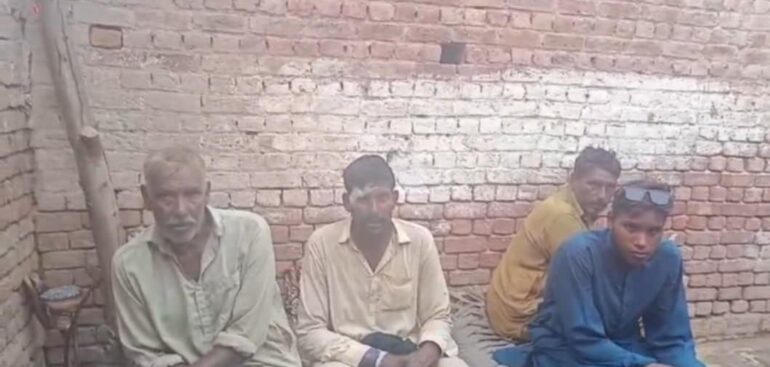In a world where hope often seems fragile, the story of Imran Masih, a Christian farm worker from the village of Malowala in Sheikhupura, pierces the heart. On September 16th, 39-year-old Imran was subjected to a vicious, unprovoked attack by his Muslim landlords, leaving him not only with a broken arm but also with profound emotional scars. This was not just an assault on his body but a brutal reminder of the stark inequalities and injustices that persist in society.
Imran was doing what he had always done — working hard to feed his family. That day, he was diligently clearing ditches in the fields of Rana Asghar, a local landlord. But his peaceful labor was shattered when another landlord, Rana Kashif, stormed onto the scene. He demanded Imran drop everything to serve him first. When Imran, in his innocence, explained that he had made an agreement with Asghar and would fulfill his duty after, the hatred in Kashif’s heart spilled out. He called Imran a “filthy Chuhra,” a term soaked in centuries of discrimination aimed at Pakistan’s Christian community. The verbal abuse quickly escalated into horrific violence.
The beating was relentless. Kicks, punches, and sticks battered Imran’s body as Rana Kashif, along with his brother and an accomplice, unleashed their fury. Imran begged for mercy, but his cries were met with more blows. When he tried to run, a grab hoe was hurled at him, striking his shoulder and sending him crashing to the ground. As the world around him blurred from pain, the assailants finally fled, leaving him broken and helpless.
But the cruelty did not end there. As Imran lay wounded, struggling to make his way home, the attackers followed him. They came to his house, not with remorse but with further threats and violence. His wife, Nasreen Bibi, desperately tried to protect him, only to be assaulted herself — her clothes torn, her dignity violated. Their children must have watched in terror, the sight of their father beaten and their mother humiliated forever seared into their memories.
It was only when a neighbor called the police that the nightmare briefly paused. The police arrived, and an FIR was registered, but justice remained elusive. The landlords, encouraged by their wealth and influence, secured pre-arrest bail. Imran Masih, the man who had done nothing but work to support his family, was left waiting for justice, knowing that the very people who had nearly killed him were free.
Imran’s story is not just his own. It is the story of many voiceless, marginalized individuals who labor tirelessly in the shadows of powerful men. He earns a mere Rs. 1,500 a day, barely enough to survive, yet he toils under the scorching sun to provide for his elderly mother, his wife, and their three young children. His dream is simple — to see his children educated, to give them a life that he was denied.
But that dream is now on hold. Imran has been unable to work since the attack, and his family teeters on the edge of starvation. “It has been more than a week since I last worked, and my family is near starving,” he said.
Imran’s family, his wife, his children, his mother — they all wait, clinging to hope. But they cannot wait alone. They need our voices, our strength, and our solidarity to ensure that justice is served. Imran Masih may be a farm worker, but his courage, and his dignity in the face of brutality, make him a symbol of resilience. And in standing with him, we stand for something greater — the belief that no man, woman, or child should ever suffer in silence.
